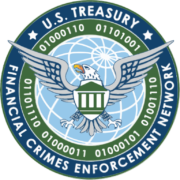The Corporate Transparency Act (CTA) (33 U.S.C. §5336) is a real law that was enacted in 2021 to combat money laundering, tax fraud, and other illegal activities by requiring certain companies to report their beneficial ownership information to the Financial Crimes Enforcement Network (FinCEN)
Ironically, it inspired many scammers to design new schemes to defraud the innocent, law-abiding their hard-earned money by leveraging naivety and technology, but also, and interestingly, a law that is designed to crack down on criminal activity, especially money laundering. The fact that it’s brand new and so many don’t know about it yet, or simply don’t know enough about it, makes it a scam that can have some success.
Since many in real estate, as well as in other business activities, use entities to hold real estate property (i.e., a rental property) or operate real estate businesses (i.e., a real estate brokerage), it’s worth raising awareness about this type of scam on this website that is focused on real estate.
The FinCEN clearly states on their website (FinCEN):
“Alert: FinCEN has been notified of recent fraudulent attempts to solicit information from individuals and entities who may be subject to reporting requirements under the Corporate Transparency Act. The fraudulent correspondence may be titled “Important Compliance Notice” and asks the recipient to click on a URL or to scan a QR code. Those e-mails or letters are fraudulent. FinCEN does not send unsolicited requests. Please do not respond to these fraudulent messages, or click on any links, or scan any QR codes within them.”
In their own FAQs, it also clearly states that:
“There is no fee for submitting your beneficial ownership information report to FinCEN.
[Updated January 4, 2024]”A reported scheme is the following:
Time is running out! A seemingly urgent letter arrives, claiming you’re in violation of a new law. It uses the intimidating title “United States Business Regulations Department” and throws around terms like “reporting obligations” and “Financial Crimes Enforcement Network.” It just wants your information. Now.
or
The same, but asks for payment of a fee that is either unnecessary or it’s disproportionately larger than the actual reporting fee ($0) or maybe they claim you’re in violation and you’ve been fined. In that case, the actual fines can be pretty hefty, so knowing that a large demand for payment could seem legitimate as far as the amount ($500 per day of missed reports and up to $250,000!).
So, if this new rule applies to you or your entity, be careful, prepared, and follow anti-scam guidelines. Not only could legitimate money be lost, but it could also go lost to criminals, who would be unfairly enriched, emboldened, and incentivized to try more.
3 tips for doing business scam-free:
- Verify correspondence with government agencies. If you receive a piece of mail or a call that seems suspicious, double-check that it’s legitimate before taking any action. Call the government office directly, using the official phone number, to verify the communications are legitimate.
- Don’t respond to or engage with scammers. As soon as you realize you are dealing with a scammer, stop all communication. Refrain from answering calls, messages, letters, or emails; block any numbers that have called you about the scam; and flag emails and messages.
- Report government impostor scams to the FBI. Help the Federal Bureau of Investigation catch scammers by reporting your experience to ic3.gov.
In conclusion, don’t fall for the Corporate Transparency Act scam: While the Act is real, the letters claiming urgent compliance aren’t. Don’t visit suspicious websites or scan QR codes provided in such letters. Report them to the authorities and verify the information through official channels.


